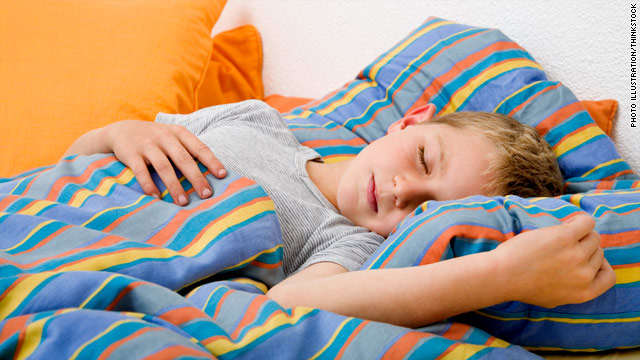

It is that time of year again. It is starting to get dark earlier. In some parts of the country, there's a chill in the air at night. And the kids have to go back to school.
For many families, there are some rough days and maybe even weeks ahead as they help their children transition back to a schedule that requires them to get up earlier than they did in the summer.
School-aged children need between 10 and 12 hours of sleep a night. If kids have been going to bed at 10 or 11 p.m. in the summer, it is unlikely that they can suddenly fall asleep at 8 p.m. the night before school starts back. It is best to gradually readjust the bedtime one to two weeks before school starts so that the kids are going to bed 15 minutes earlier every couple of nights until the desired bedtime is reached.
If bedtime routines have fallen by the wayside, it is time to reintroduce them. I recommend that the hour before bed be a buffer zone between the hectic day and what we hope is a peaceful night. Homework should be completed by this time.
Although it can be hard to achieve these days, ideally there would be no use of electronics in that hour. And electronics, including cell phones, should be kept out of the kids’ bedrooms. This should be a time for hanging out as a family and then most routines end with bathing and reading.
It is important to keep lights low in that hour before bed. This allows melatonin to be released. It also prevents wake-promoting neurotransmitters from being triggered by the light. Light is the most powerful signal to which the brain responds to know when to be awake and when to be asleep. It is primarily because of our concerns about the wake-promoting properties of light that sleep doctors recommend no electronics near bedtime.
For the same reason, we recommend bright, preferably outdoor light first thing in the morning for one to two hours. Sitting by a bright window can be just as effective.
For many health reasons, it is important for children to have lots of physical activity to regularize their sleep/wake patterns. But again, there should be that downtime before bed. We recommend no strenuous exercise two to three hours before bed.
Remember that any habit you instill or encourage to help your child drift off to sleep should be something that she can do on her own when she awakens in the middle of the night. It is normal for a child to awaken for a few minutes several times during the night, but if the only way he can get back to sleep is to have you rub his back, that is a problem, at least for most parents who are trying to get their own quality sleep.
The start of a new school year is a good time to review your children’s use of caffeinated drinks, and don’t forget to include chocolate on the list. For myriad health reasons, soda should be avoided and certainly children should have none past lunchtime in order to avoid insomnia. Even if it is diet and decaffeinated, it is a bad habit to encourage. Cutting out soda is perhaps the single, easiest health decision that you can make for your kids and yourself.
The information contained on this page does not and is not intended to convey medical advice. CNN is not responsible for any actions or inaction on your part based on the information that is presented here. Please consult a physician or medical professional for personal medical advice or treatment.
No comments:
Post a Comment